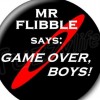Tips to Get a High Search Engine Optimization Ranking?
Why is it when people are challenged about the facts or supposed facts they publish in there hubs they simply remove the challenging comment. When someone publishes something that could damage the livelihood of the reader, surely it’s the moral responsibility of someone who knows better to make others aware.
Such an instance has happened to me and for the reasons above I feel compelled to comment. Firstly though, let me point out that I do believe hub authors should have the ability to remove unsolicited spam from their comments, however when the removal of comments is to cover up the authors complete ineptitude in a topic and put the reader at risk then it’s just plain wrong.
I recently commented on a hub on Search Engine Optimization titled Tips to Get a High Search Engine Optimization Ranking. In this hub the author claims canonical issues can be resolved by changing the words used in a URL. If you actually did this you would be creating a new URL that search engine new nothing about and any traffic and consequent sales or profit generated by the original page would be lost.
Here is the comment I made word for word:
How do you go about finding and testing suitable keywords for aquisition and conversion?
Could you tell me what search engines use the mets keywords tag to evaluate catagorize or rank pages?
The URLs you show in your canonical explanation could still have canonical issues. Canonical problems can come about by allowing both the www and non www version of a website to be indexed or through dynamic sites that produce pages that are almost identical. In truth both the urls you use in your explanation could have canonical problems. Simply making a URL readable to humans or inserting keywords has nothing in the slightest to do with being canonical or not.
Google introduced the canonical tag last year to get around the dynamic content issue and a 301 redirect can resolve the www non www issue. The example you give wont.
End of comment.
A full explanation of canonicalization can be found here
http://www.mattcutts.com/blog/seo-advic … alization/
In short, canonical issues come about when both the www version of a website and non www version of a website can both be indexed this can create problems with rankings. Another reason this may come about is through dynamic sites that generate pages that are almost identical in this case you need to tell search engine which URL is the canonical URL.
If you have a commercial website, do not follow any of the advice on the hub mentioned above or any of the other alleged SEO hubs penned by the same author, unless of course you want your website to disappear completely.Thanks for sharing this. i will go have a look at the blog you recomemnded
Mate, I blocked your comment because you're only partially correct and I didn't want my readers to be confused. Looking back, I probably should have simply accepted your comment and publicly corrected you for everyone to read.
Canonical urls are TYPICALLY urls that use a 301 redirect fromt he .HTACCESS file of a website. For example, redirection from www.website.com/read-post.php?id=344 will have a 301 redirect to www.website.com/news-about-google-searc … tion.html.
They can also be used for telling both search engines and webpages to redirect to the www version of a website.
Furthermore, url canonization provides spiders with details about what a page is about. When you go to "www.potsandpans.com", it's different from going to "www.momandpopsusedstuff.com."
The simple reason for this is because one domain should describe the content of a website and the other should describe a brand name.
Lastly, the link to Matt Cutt's blog describes exactly what I've said.
My sincerest apologies for deleting your comment,
Jason Freemon.
Peter, he made a formal apology and both of you have your own points of view one should never publicly scorn another hubber it isn't professional, you could have noted the discussion but it isn't always good to discredit another hubber and I am certain that not a single person would wish that upon themselves nor would you like to be publicly scorned. If you are trying to start a debate just say it but pointing fingers can fuel anger and people get banned because they cannot always control there tempers. You are smart and you know better!

OK for the sake of clarity lets take your statements 1 by 1.
How does simply changing a url from 'hubpages.com/04349eef11a', to http://hubpages.com/hub/Tips-to-Get-Hig … on-Ranking guarantee that the later is seen as the canonical URL. Surely there would have to be other server side actions in play.
I should also point out that when I search Google for
'Tips to Get High Search Engine Optimization Ranking'
this page ranks number 7, and the URL is http://hubpages.com/forum/topic/post/32764 (which doesn’t fit in with your description of canonical) while your original page which was indexed prior to this and has the URL
http://hubpages.com/hub/Tips-to-Get-Hig … on-Ranking
is nowhere to be seen?
There may be a difference the results that you see because I am viewing results from Spain.Hi Sandro, thanks for commenting, I would differ on that point of view because there is a 301 in place to ensure that only the non www version of this site can be indexed.
The real question being asked is how does simply changing a url from 'hubpages.com/04349eef11a', to http://hubpages.com/hub/Tips-to-Get-Hig … on-Ranking guarantee that the later is seen as the canonical URL without any of the server side stuff being in place.Well, then I need some clarification on this. Here's my version of what a canonical url is:
When a page has more than one url pointing at it as in the above example, you have to specify in the html code of the page which of these urls should be indexed. This would be the canonical url.
If there is no canonical meta tag in the html code then google just picks one of the urls at random.
Am I wrong?The 301 redirect I refer to is most likely sitting in the .htaccess file in the root of this site. But you are correct in assuming that the purpose of either technique, .htaccess file or the canonical tag is to ensure that only one version of a URL can be indexed. It also prevents any duplicate content issues and ensures that the link juice from inbound links finds its way to the correct pages.
Im sorry but I would have to agree with Peter Hoggan. Your right, im not sure how no one else understands this issue.
AEvans, your point is well made, however this is not a point of view it’s a point of fact and one that could cost those that followed what was being said dearly. I am sorry that you deem it unprofessional on my part to challenge those inaccuracies, personally I would rather thank any individual who gave me accurate guidance and steered me in the right direction.
I dont think you were unprofessional. Search engines are apart of a mathematical model and mathematics are a science. In science you challenge things you disagree with, it is apart of the scientific method for God's sake. You definately have to leave your ego at the door.
This may help to clarify things
http://googlewebmastercentral.blogspot. … nical.html
RichI just noticed that the blog to which I refer to has been changed and the canonical stuff removed. And I was so looking forward to being publicly corrected as the author put it.
OK Here is my next question. How does having keywords in a URL guarantee that those keywords will be used within the anchor text of every inbound link that points to it?Peter Hoggan, I'm going to kindly ask you to stop harassing both my hubs and my own person in this thread. I've changed them in an attempt to stop this nonsense.
OK I don’t have a problem with that, can I ask in return that you refrain from posting inaccurate SEO information that could damage both the websites and the income of the reader.
I said that I have corrected it.
The information I have posted is that which I have used to do SEO work for a year and a half now.That doesn’t necessarily make any of your claims correct!
Despite the fact I am still waiting to be publicly corrected and despite the fact there are still many inaccuracies in your hubs that are potentially damaging this will be the end of it.
However, I would like to remind readers to exercise extreme caution regarding any ‘advice´ given on the hub mentioned above or any of the other alleged SEO hubs penned by the same author.
I'm sure that Peter would be happy to go through your work and correct any accuracies for an hourly fee.
You have written hubs that give information you want others to follow for the purpose of improving their Search Engine results.
It's up to YOU to make sure that the information that you provide is correct. And not for other people to go through them to correct your errors.
You have started another thread here, complaining about problems with an aggressive hubber.
Good grief. How melodramatic.
http://hubpages.com/forum/topic/32905
All Peter has done is question the quality of the information that you have provided.
Well, I suppose you'll complain about me now as well, and say that I'm attacking you.
I leave it to the skill and judgement of the moderators to determine my fate.
Regards,
Eric G.Nice avatar Eric, I see you have upgraded to a twin processor!
I want to formally apologize to Peter first and foremost. I should have been grateful that he pointed out my mistake and potential misguidings to my readers.
I will not try to make an excuse for my ignorant actions and even further ignorance that I have displayed today. I will proofread and correct the hubs which I currently have and attempt to improve them in order to gain some granule of trust back as a professional and a person.
I will say one thing, the initial reason I was so hot-headed was because Peter chose to publicly display my idiocy on the forums, to be honest, it felt like I was personally being attacked and not that the information was being questioned. Had I let it go, it probably would have amounted to something much less than I have blown it up to be.
I did have the definition of "canonical urls" incorrect and I apologize for that as well to both Peter, the people who replied in this thread, and to any people who may have read my hubs and been misdirected or misguided.
I will also say that I have added the appropriate sections and where I provided incorrect information, I have attempted to correct and link to other hubs that were correct.
I also want to say that as far as having a keyword-rich url goes, it does help your site rank better. My proof is two-fold, firstly this page: http://searchengineland.com/googles-mat … -url-16976 and the fact that when you enter a keyword into Google, you can see it in bold in the url of a result. I believe these two things prove that this "tip" of mine that has been dismissed is viable, or at least as viable as anything goes in SEO.
I want to end this post by saying three things: I will continue to write hubs about SEO, I will make better hubs about SEO and I will respond to challenges appropriately.
I also want to apologize for the wasted time and strife created by my hot-headedness once again.
Jason Freemon.Hang on, search engine freindly URLs do offer a very slight benefit as far as rankings are concerned, is anyone saying different?
All I can say is that i have leant a lot from this thread. I always look out for opportunities to learn new things.
I can say from experience you will not get high ranking on hubs overnight. I have take some hubs and posted on AC just to see the difference. My content on AC is almost identical to what is here, te stuff here never got to first page google but all 4 of my posts on AC have reached top 15 spots on google for thier keywords or phrases. Hubs are not the easiest to get top spots but if you can get on top on another site and link to here you can see traffic increase.
Posting content that is almost identical might be causing big G´s filters to kick in. Whether this is or isn’t the case, it’s not a smart thing to do if you want multiple articles to actually rank for a term.
It's definitely best seo practice to have keywords in the url. The rest of the argument seems like just being pedantic about what the precise definition of 'canonical' actual is. The www. and non www is a whole separate issue.
Wow.Some of it is a little above my pay grade,but what an interesting debate.Maybe some day I will grasp the inner workings of html.
Ditto. I rely a little less than I used to on Hubbers' advice on SEO as there are so many contradicting views out there. If I find info that is repeated by sveral experienced hubbers, then I'll follow it but I would never take a single author's advice at face value for the reasons above.
I will now give everyone the best SEO advice they will ever get.
Don't trust anyone. Read everyone. A pattern will emerge from all the conflicting information and you will see how it should be done.
Related Discussions
- 5
What's the best SEO software to use?
by Ylva 13 years ago
What's the best SEO software to use?
- 80
Anyone else not getting indexed by Google?
by Dan Harmon 15 years ago
I now have 11 hubs that are not indexed by google - nothing published since July 12 (the last one was published on the 9th and indexed yesterday). Normally I've seen then set up with 24 hours, occasionally in 48, but now it's 8 days and not done!!??
- 10
What are the general SEO techniques followed around hubpages?
by mistu4u 10 years ago
No theory, I want to know practically what course of action can really increase the traffic to my article i.e. what actions really SEO the articles? Fellow hubbers share your experience.
- 17
SEO experts....How important is it that URL matches title keywords?
by TahoeDoc 12 years ago
SEO experts....How important is it that URL matches title keywords?I titled a hub, partially typed and saved it. Then I decided a different title would be more appropriate and changed it. I just realized the URL (in the address bar in the search engine) keeps the original title. So my URL does not...
- 42
What affects search engine indexing and page ranking?
by Beth100 12 years ago
Alright, this is a very basic question (yes, I know it is, but.....) I thought I understood this but the other night, someone told me that indexing has no affect on page ranking. He went as far as to say that he has purchased page ranking from Google, etc. I have not heard of...
- 24
What are the basics of SEO that every website owner should know?
by Shil1978 11 years ago
What are the basics of SEO that every website owner should know?





















